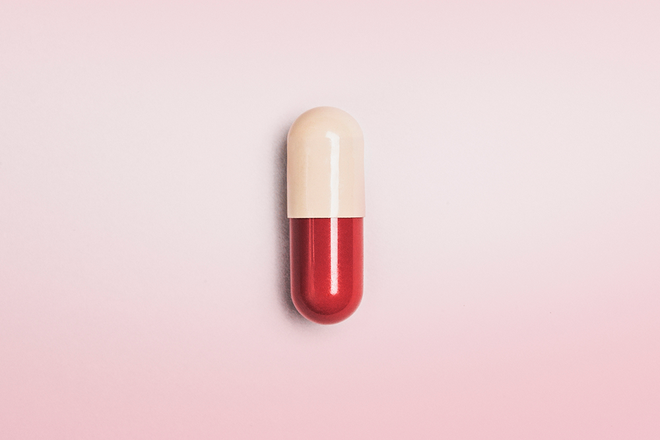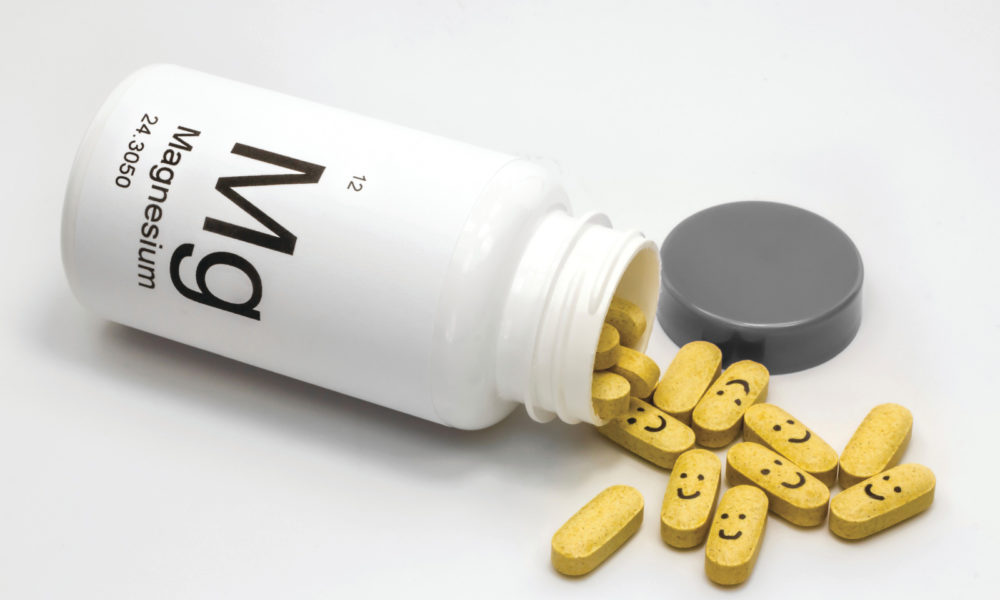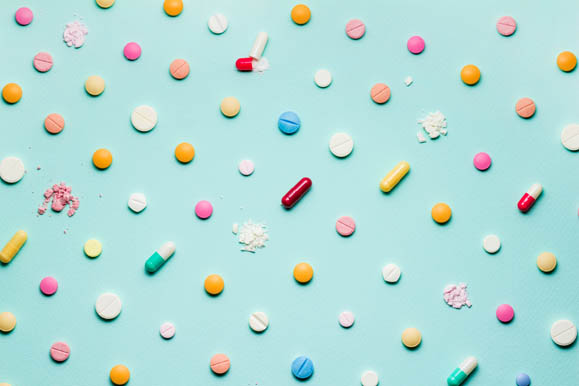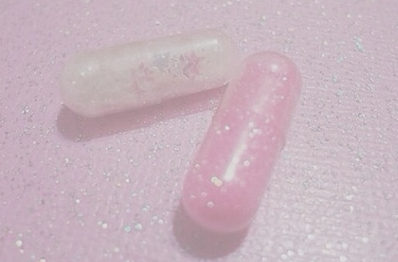BELL LET’S TALK: MEDICATION

Medication. Oof, what a hefty topic.
I’ve been prescribed a lot: Antidepressants, Anti-anxieties, Antipsychotics, Sleeping Pills, medication for ADHD, and of course, Birth Control. I’ve taken a few, but most of it sits silent on my bedroom shelf; no doubt expired; haunting, and taunting me to take the Golden Pill.

Could it be that easy? Could all my woes be gone? Would I cease to repeat my destructive habits? Would my
relationships begin to bloom, and would I save the ones that have faltered and fell? Most pertinently; could I be
normal?
I haven’t a clue.
I’m afraid. Petrified. I don’t want to lose my personality. I don’t want to round out my edges. I don’t want to feel
that wretched numb that I have felt all too often in those states of paralysis during, and following my childhood
abuse.
And so, I abstain.
I carry on fucking up everything, and feeling it all. Learning, growing, even evolving? I can only hope.
I know I’ve got a very one sided view of medication. I know I’m being narrow-minded and judgemental, but I’m
simply too aware of the side effects to take part. My doctor claimed there to be none. How is that even legal for
him to say, when there are so clearly documented downfalls to pharmaceuticals?
I wish I could use marijuana, but I am even too afraid of that drug to allow myself to try it out. I’ve had a rocky past
with drugs, and I don’t want to go there again. I don’t want to succumb. I’m afraid of the addictive nature of my
personality. I can’t even drink. I wish I could. Again, I wish I could be normal.
I want to open my mind more to the other side of the story. I hope that this article will prompt a discussion, and
you will reach out to me with more experiences you’ve had.
I’ve got a couple things now for my hormones and my
depression that I’m almost swayed to take. Will I? Who knows. I might. What could it hurt if I just tried, right? Are
there permanent damages that will stamp me if I do?

The following words are selected from those of you who wrote in. I have chosen two very brave souls with differing views on medication who reached out to me with their experiences. I want to thank everyone who sent in their thoughts, and encourage you to continue to do so, to be shared at a later date.
FROM JESSIE GUTHRIE:
Hey, I saw the post on your story and thought I’d give my two cents! So I’ve been dealing with mental health for the last 10
years, and have been on meds for it for 5. Honestly, the reason it took me such a long time to try medication was the
stigma. I was worried they would change who I am as a person, and even though my OCD made me go to a hospital, I
didn’t want to change my personality. I eventually tried antidepressants, and genuinely they have helped so much. It’s
cliché, but they actually gave me my life back. I wasn’t so consumed my anxiety, and I could finally go places and do
things I couldn’t before. The only ‘change’ to my personality was that it helped with my social anxiety, so I could actually
talk to people I had wanted to befriend years prior.
However, as I’m sure you know, just because it helped me doesn’t mean the stigma around mental health medication
disappeared. I still felt the need to hide that I had medication for my anxiety/OCD, and if it came up I had to turn it into a
joke to avoid feeling judged. To this day, I still call them my ‘happy pills,’ instead of SSRIs or antidepressants. I know it’s
bad, but joking about myself makes it so no one else can make me feel like sh*t for taking meds.
Thanks for letting me share my story!
FROM MARK RASTENIS:
Hello!
Because its something I’ve struggled with my whole life, I love any effort into research and dispelling the stigmas of
mental health. So, here’s my experience with my medications.
I was diagnosed with ADHD and social anxiety disorder when I was young, and took medication for them from about
fourth grade until junior year of high school, so about seven years or so. They included ritalin and concerta for the adhd,
and meds to help the anxiety involved mood stabilizers like risperidone. To be quite honest, the meds helped when I was
very young but eventually began to help me less and less. The side effects also put some strain on me, such as
weight gain, random loss of appetite, and a tic in my shoulder that i still have. Eventually, I stopped taking medication and
moved solely to counseling for mental health, where I learned about mindfulness, which has been the biggest help to me
as an individual.
I was super lucky that because my mother was a teacher, I had someone that understood the mind of kids and was able
to fight for me. She was able to advocate for me against schools that didn’t care about mental health as well as my peers
who sometimes teased me.
For me, the pros weren’t as numerous as i had hoped, though they did help a little bit. I was noticeably less impulsive, I
was better able to keep track of my school assignments, and I wasn’t nearly as physical; because I’m a triplet, my
childhood was spent roughhousing with my siblings. The cons were not life threatening, thank goodness, but there were
a lot of negative effects that my physicians didn’t really go over with me when they prescribed them. Sometimes it was
hard to feel like I was 100% myself when I was on my meds.
However, I believe that the stigma against taking medication for mental health is entirely unfounded; the brain is an
organ just like the heart or lungs, and no one would ever shame or think differently of a person who had to take
medication for their heart. So why should they for mental health, y’know?
WE DECIDED TO ASK MARK A FEW QUESTIONS THAT MIGHT BE OF INTEREST TO YOU IN THE BELOW INTERVIEW:
CA: How do you manage your anxiety and ADHD now without medication?
MR: My anxiety and ADHD have changed over time – when i was young, my ADHD was most prominently me not being
able to sit still at all or think before I talk, and as I got older, it manifested more in forgetfulness and general impulsivity.
Though i’m off my meds, I’m still able to manage. In my experience, everyone has to find what works for them individually;
I’ve tried planners to help forgetfulness, setting up phone reminders, etc, but what works for me is placing post it notes at
a desk where I spend a lot of time. As for my social anxiety, I’ve found that writing journal entries in a steam-of-
consciousness style allows me to organize all my thoughts: it helps me turn all of those “what if’s” into concrete, solvable
problems. Beyond this, I’ve started mindfulness meditation, and it allows me to come at my anxiety and ADHD from a
different perspective, which can be helpful sometimes.
CA: Can you please go into more detail about the tic in your shoulder? What seems to trigger it?
MR: My tic is relatively small and does not interfere with daily life at all – starting around middle school, around the first
time the dosage of my Concerta was increased, i started to get short, 1-2 second up-and-down spasms in my right
shoulder exclusively. Nothing particularly seems to trigger it, but i have gotten used to how my body feels about 5
seconds before it happens. I would say that it occurs maybe a few times a week, so not too often.
CA: Do you feel like you’ve gotten ‘yourself’ back now after coming off the meds?
MR: My meds caused me to sometimes not feel like myself at an interesting point in my life. I don’t think that any
teenager going through puberty has a solid sense of who they really are, y’know? This combined with my meds
sometimes making me feel different than what i thought i should be. I’m unsure of exactly how they made me feel unlike
myself, because i wasn’t sure who i was supposed to be – but they made me feel subdued sometimes. I think that’s the
best way to put it, though it might sound too harsh or severe.
CA: How did the social anxiety manifest itself? Can you give us an example of what the experience might look like for
you?
MR: Though i’ve been coming out of my shell for the past few years, my social anxiety used to be much more extreme.
There are two cases of my social anxiety that i think are good examples: 1) In my freshman year of high school, during my
honors english class, my teacher once pulled me into the hallway to ask me something. She asked me if I had selective
mutism; if anxiety was causing me to be unable to talk. I answered her no and brushed it off, but this illustrates just how
little i was able to communicate with my peers and adult figures. 2) During my middle school’s 8th grade dance, which my
parents nudged me to go to, I spent most of my time sitting on a bench by myself, and though some of my friends
encouraged me to come dance (my best friend even asked a girl if she would like to dance with me, and she was very
nice in trying to get me to dance with her, but I did not want to) I would not move. I have no doubts that my friends’ intent
was nothing but pure, but some people ended up trying to pull me off of the bench my pulling on my arms, and I really
resisted this as best I could. Nowadays, dances are not my favourite thing in the whole world, but I am definitely able to
enjoy myself if I am with people I trust.
CA: What would you say to people who are being told to take medication, but are having doubts?
MR: To people who are being told to take medication, but are having doubts, I would say this: in many ways, mental
health is akin to physical health. In this light, there is sometimes only so much we can do without an outside source of
help – for example, an athlete with a broken leg can have the most positive attitude, but she won’t heal properly if she
doesn’t use an outside source of help, such as a cast, or a splint. So, we would never tell an athlete with a broken leg to
just “walk it off”, and sometimes when we aren’t in our best mental health we can’t just “think about it differently” or “just
be happy”; sometimes we need a source of outside help, such as meds, and there is no shame in asking for help. When I
was in elementary school, I loved to draw but struggled in math. My teacher asked me “mark, what if one of your friends
came to you and asked you if you could help them draw a picture? how would you feel?” And I said that would make me
very happy, because I would be able to help them succeed. And she told me that that is how she feels when I ask her for
help with math; that she is excited and wants nothing but to see me succeed. There is no shame in obtaining help when
you need it, because every single one of us needs help from time to time.
All my love to those of us working through our mental health.
A huge thanks again to everyone who sent in, and a special thanks to Mark, and Jessie.
Your voice matters. We’re in this together.
Learn more about Bell Let’s Talk Day HERE
written by cass
